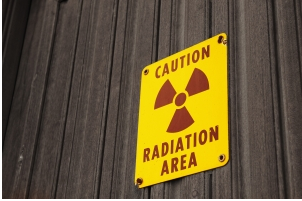How does iodine protect against radiation poisoning?
Been hearing a lot about iodine in the news lately? In light of the recent earthquake and nuclear reactor damage in Japan, terms like iodine, thyroid damage, radiation exposure, and radiation poisoning are suddenly being thrown around. Japanese citizens, people in nearby countries, even seamen aboard the U.S.S. Ronald Reagan cruising in nearby Pacific waters are being affected by this threat of radiation. If you’ve been watching the news, you may be wondering why potassium iodide tablets and other iodine supplements are being given out to residents and all affected citizens. Well…
 Radioactive iodine (iodine 131) is a byproduct of uranium fission, the energy producing process that takes place at the core of a nuclear reactor. In the instance of a radioactive leak, such as the one caused by the Japan earthquake, radioactive iodine is released into the air and can be inhaled by anyone within reach of the radioactive cloud. It can also contaminate food and water supplies and become ingested orally. Once in the body, radioactive iodine is absorbed by the thyroid gland and is very damaging to this vital gland.
Radioactive iodine (iodine 131) is a byproduct of uranium fission, the energy producing process that takes place at the core of a nuclear reactor. In the instance of a radioactive leak, such as the one caused by the Japan earthquake, radioactive iodine is released into the air and can be inhaled by anyone within reach of the radioactive cloud. It can also contaminate food and water supplies and become ingested orally. Once in the body, radioactive iodine is absorbed by the thyroid gland and is very damaging to this vital gland.
Okay…so radioactive iodine sounds bad. Why then would anybody want to take iodine supplements? Well, the thyroid is able to absorb both radioactive and non-radioactive iodine, and cannot differentiate between the two in the broad sense that both are iodine. The thyroid is limited in its ability to absorb iodine and therefore can only handle so much each day. Therefore, if non-radioactive (safe) iodine is taken orally, the thyroid will not be able to absorb the harmful radioactive iodine in the event that it is absorbed into the body via inhalation or digestion.
You can buy non-radioactive iodine in the form of potassium iodide right here:



